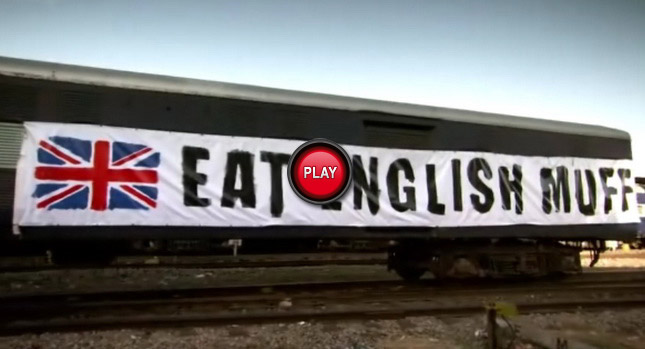It’s true that the British have a special sense of humor; self-depreciating, absurd, even surreal at times, and no subject is off-limits. But the thing is that people from different countries and cultures may just not get it, or in certain cases, even be offended.
It’s that sense of humor which is a trademark of famous car TV show Top Gear that has often landed them in hot waters. This time, though, their “Christmas Special” episode almost caused an international diplomatic incident between Great Britain and India.
Last July, Top Gear producer Chris Hale wrote a letter to the Indian High Commission in London, asking for permission to film an episode in the country.
“Jeremy Clarkson, Richard Hammond and James May will travel across India in three cars filming a light-hearted road trip… there will be spontaneous interaction between the presenters and their environment, and potentially people they meet along the way,” Hale wrote in the letter.
Apparently, this was the TG way of informing the Indian High Commission that the hosts would do things like put a lavatory in the back of a Jaguar XJS because as Clarkson put it, “everyone who comes here gets the trots”, or that they would place a banner on a train reading “Eat English muffins”, which doesn’t sound offending until the carriages split and the last three letters went missing…
Top Gear insulted yet another group of people. So, what else is new? And where does the UK government fit in all this?
It wouldn’t, if the opening scene wasn’t filmed in front of 10 Downing Street; Clarkson did not read a “letter” from the PM and Cameron himself did not appear waving at the hosts, telling them to “stay away from India” before getting in his governmental XJ.
As The Daily Telegraph reports, the Indian consulate received many complaints from people who thought that the show insulted their country and culture. The High Commissioner wrote a letter to Hale, in which he complained that the BBC show producers “are clearly in breach of the agreement you have entered into. We strongly protest and expect the BBC to make amends, especially to assuage the hurt sentiments of a large number of people.”
Downing Streets tried to distance the Prime Minister from the episode, saying that Cameron “did not like the program at all and the Indian people should now that he has the utmost respect for them.”
The PM’s official spokesperson commented on Cameron’s appearance in the episode: “The BBC are able to film in Downing Street, as are other broadcast companies. They were in the street and he was leaving for an event. The Government is not responsible for editorial decisions made by the BBC or any media organization. This is a matter for the BBC.”
One consulate official told The Telegraph: “We understand the free press – they are welcome to explain and to challenge as long as it is fair and above the belt. Can this pass as acceptable journalism?”
Now, that’s a very good question that’s often been debated. Should there be boundaries to the press’ freedom of speech? And if so, where is the line drawn, and by whom?
VIDEO







